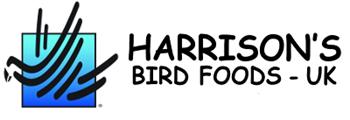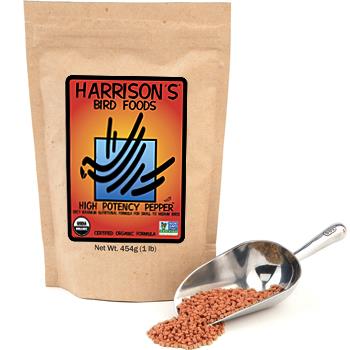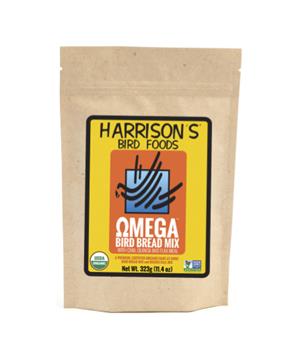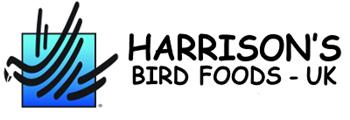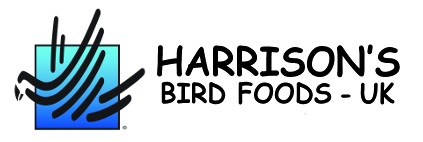Why Organic?
To be able to choose to use an organic product as opposed to a non-organic alternative would seem to be a easy choice. The quality of the food in terms of direct nutrients and lack of exposure to a wide range of toxic agrochemicals which may have an immediate direct or accumulative effect on body systems makes organic a much healthier option. For this reason a premium is placed on the words ‘organic’ and control over what can and what cannot be advertised as organic has to be regulated.Make sure that what you are purchasing is certified organic. If it is not ‘certified’ as organic by a nationally recognised agency then it is not legally classed as organic and should not be marketed as such.
Harrison's Bird Food are certified organic in the USA by Where Food Comes From Organic (US-ORG-001) and certified in the UK by the Organic Food Federation (GB-ORG-04)
Harrison’s, pet birds and organics
Parrots and other pet birds are well known to be especially sensitive to environmental toxins, such as certain metals, chemical cleaners, and overheated plastic-coated cookware. Chemicals that normally are only irritating to humans and other animals can be extremely toxic to parrots. It is only in recent years that thought has been given to the potential cancers, neurological problems, hormonal imbalances, allergies and disruptions of their fragile immune systems that may be attributed directly to pesticide residues on foods that parrots ingest, or to the inherent dangers of commonly used pet food preservatives such as Ethoxyquin.Organic is the answer. The use of the USDA Organic seal on Harrison’s products designates that third party organic certifiers, accredited by the USDA have confirmed that Harrison’s Bird Foods meets the guidelines specified in The National Organic Program. Harrison’s Bird Foods are made from crops grown under strict organic specifications. The formulas are created, packaged and stored (at the HBD distribution facility) under these strict specifications.
Are there any down-sides to Harrison’s being organic? It is almost impossible to over-estimate the benefits that a pet bird will derive from eating Harrison’s Bird food with their scientifically formulated diets and the organic seal of approval. However, in attaining organic status the only preservatives permitted in the foods are those naturally occurring within the product. This means that, unlike some products that use chemical preservatives, Harrison’s foods have a shorter shelf-life.
What does “Organic” mean?
Organic agriculture is an ecological production management system that promotes and enhances biodiversity, biological cycles and soil biological activity. It is based on minimal use of off-farm inputs and on management practices that restore, maintain and enhance ecological harmony."Organic" is a labelling term that denotes products produced under the authority of the Organic Foods Production Act. The principal guidelines for organic production are to use materials and practices that enhance the ecological balance of natural systems and that integrate the parts of the farming system into an ecological whole.
Organic food handlers, processors and retailers adhere to standards that maintain the integrity of organic agricultural products. The primary goal of organic agriculture is to optimise the health and productivity of interdependent communities of soil life, plants, animals, people and the environment in general.
Organic food is produced by farmers who emphasize the use of renewable resources and the conservation of soil and water to enhance environmental quality for future generations. Organic food is produced without using most conventional pesticides; fertilizers made with synthetic ingredients or sewage sludge; bioengineering (GMO); or ionizing radiation. Before a product can be labelled “organic,” a government-approved certifier inspects the farm where the food is grown to make sure the farmer is following all the rules necessary to meet, in the case of Harrison’s Bird Foods, USDA organic standards. Companies that handle or process organic food before it gets to your local supermarket or restaurant must also be certified.
What does "certified organic" mean?
"Certified organic" means that a non-profit, state or private certification organisation, accredited by the country of production and where appropriate, country of importation and distribution, has verified that products labelled as "organic" meet strictly defined organic standards.Why is "certification" important?
- Provides for product differentiation
- Ensures product’s value
- Protects consumers from fraud
- Boosts consumer confidence
How can I tell organically produced products from conventionally produced items?
You must look at package labels. Along with the national organic standards, USDA developed strict labelling rules to help consumers know the exact organic content of the food they buy. The USDA Organic seal also tells you that a product is at least 95 percent organic. No official seal means it is not an officially recognised organic product.Does "made from organic foods" mean organic?
No. The process of organic certification also takes into account the storage, processing and manufacturing of the end product which must also conform to organic standards. (Using organically grown food but then including a chemical preservative in the finished product, for example, would negate the organic status.)Does "natural" mean organic?
No. Natural and organic are not interchangeable. Other truthful claims, such as free-range, hormone-free, and natural, can still appear on food labels. However, don’t confuse these terms with “organic.” Only food labelled "organic" has been certified as meeting organic standards.No GMOs
Products containing GMOs (Genetically Modified Organisms) genetically engineered crops etc. cannot be certified organic. However, Harrison's Bird Foods have gone even one step further in gaining certification for their organic products with the Non-GMO Project.Organics and the environment
Conventional farming techniques have incorporated chemical pesticides for many years. In the beginning it was believed that these pesticides were the only way to maintain high crop yields. Not much thought was given early on to the cumulative dangers of these poisons as they were continuously being fed into the earth. Pesticides can cause serious environmental problems. Many pesticides are highly toxic to aquatic life. Pesticide pollution can be driven by rainfall, with contamination of rivers and groundwater occurring from water draining off land or infiltrating to the water table. We are concerned about pesticide residues in water and the effects of pesticides on wildlife. The increased use of pesticides is one aspect of a general intensification of agriculture over the past fifty years. As a consequence of the increased use of pesticides, the number of farmland birds has declined. Evidence suggests that certain pesticides that find their way into water can interfere with endocrine (hormone) systems, for example affecting fertility and reproduction in fish, and leading to developmental changes.The US Migratory Bird Council estimates that of the roughly 672 million wild birds exposed annually to pesticides on U.S. agricultural lands, 10% or 67 million are killed.
Organic farming, or sustainable agriculture, is the first step toward moving away from this dangerous trend. Proper crop rotation breaks the cycles of pest and disease problems and balances the nutrient demands of specific crops. Alternative pest controls, such as certain insects or plantings, are incorporated into agriculture. The result is a safe, fertile and biologically diverse ground soil without the dangers of pesticide runoff.
Visit the Harrisons Bird Foods website for more information on Why Organic?

